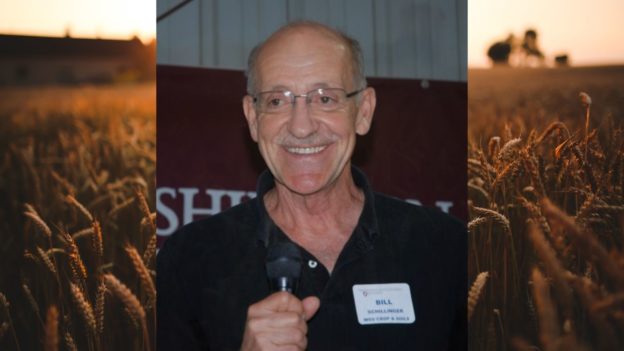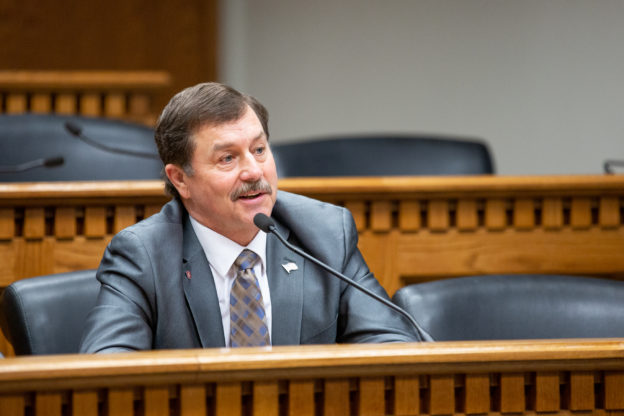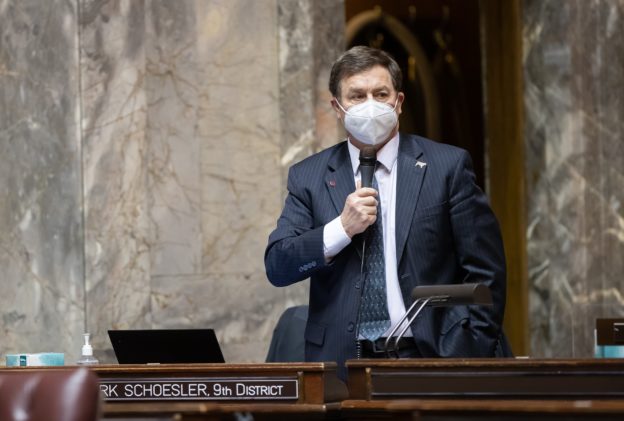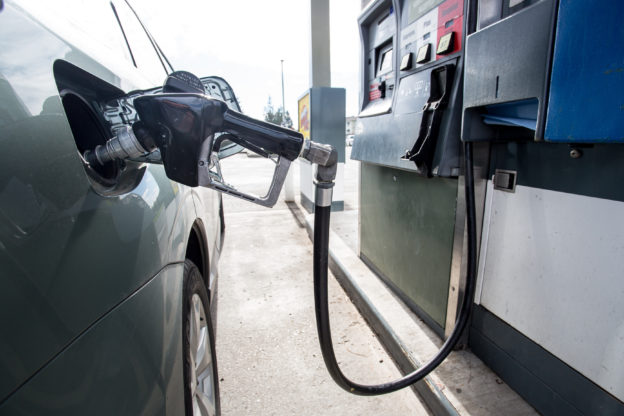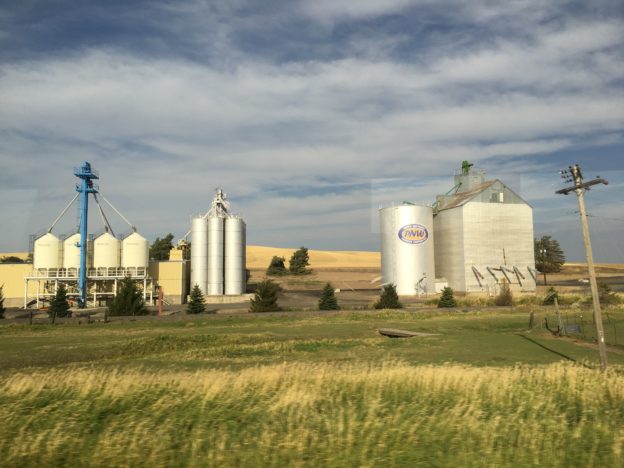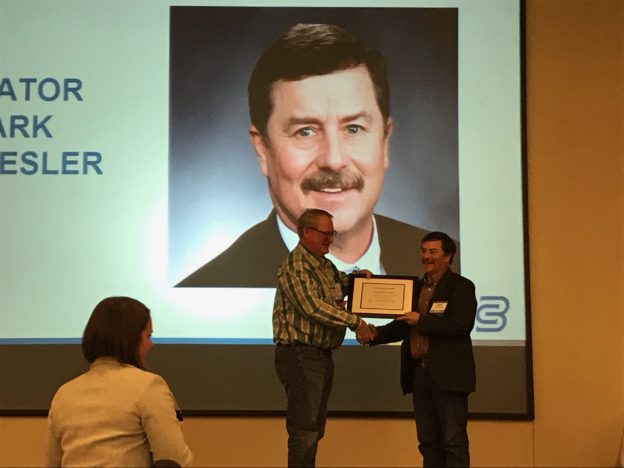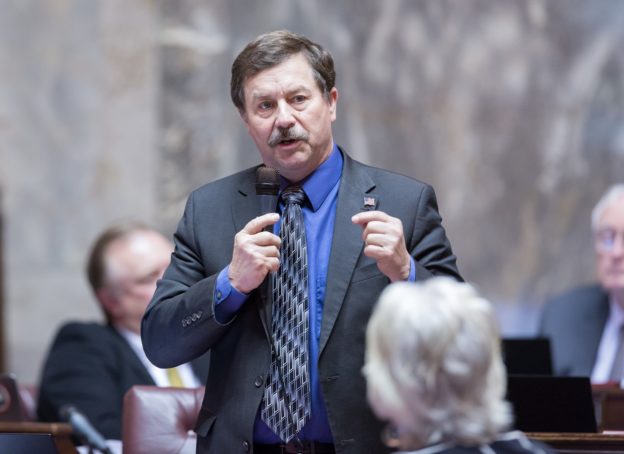Dr. Bill Schillinger, the longtime researcher who ran Washington State University’s dryland research farm in Lind, was honored today on the Senate floor with a resolution sponsored by 9th District Sen. Mark Schoesler.
Dr. Schillinger retired this January after a 29-year career working at the dryland research station. During his time there, the farm did groundbreaking research on how to combat wind erosion, including conservation-till and no-till farming methods; alternative crops to winter wheat and other extensive long-term research projects, and soil and residue management practices to increase water storage and efficient use of precipitation.
“For 30 years, Bill Schillinger has been the heart of research and agriculture at WSU Lind,” said Schoesler, R-Ritzville. “The Lind research farm has the lowest rainfall and is the driest location in the United States. In that region, we don’t worry about how well something grows. The first question asked is, if it will grow. When someone talks about cool things like cover crops, we’re just hoping any crop will grow in that area.
“Bill has spent 30 years dedicated to working on problems that face us in dryland-wheat country. For example, wind erosion, something that benefits every one of us.
“During this period, Bill has enjoyed the enthusiastic support of myself and fellow growers, and our landlords. We created an endowment for the research farm. In just two weeks, we raised the necessary money to start it, and it’s prospered that we can stand on our two feet there with the support of the growers, the Washington Grain Commission and move agriculture forward, not just for ourselves but for the benefit of the state as a whole.
“It’s with sadness that we see Bill retiring but for all of the incredible work over 30 years, we wish Bill the very best and say ‘thank you.’”
Schoesler’s speech honoring Dr. Schillinger can be viewed here.
The text of Schoesler’s bipartisan Senate Resolution 8645, is here:
SENATE RESOLUTION 8645
By Senators Schoesler, Dozier, Frockt, Honeyford, King, Nobles, Wagoner, and Warnick
WHEREAS, Bill Schillinger grew up on a dryland wheat farm south of Odessa, Washington; and
WHEREAS, Bill Schillinger earned a bachelor’s degree in Communications from Eastern Washington University, and a master’s degree in Agronomy from the University of California, Davis, then worked for the United States Agency for International Development in Africa and Asia for 10 years, before returning to the United States to earn a PhD in Agronomy from Oregon State University; and
WHEREAS, Dr. Schillinger began working at the Washington State University dryland research station in Lind, Washington on January 1, 1993; and
WHEREAS, Dr. Schillinger was the principal investigator of three multidisciplinary long-term dryland and irrigated cropping systems experiments; and
WHEREAS, During Dr. Schillinger’s long career there, the Washington State University dryland research station did groundbreaking research on combatting wind erosion, including conservation-till and no-till farming methods; alternative crops to winter wheat and other extensive long-term research projects, including a cropping systems study 25 years in the making and a winter pea study that is in its 12th year; and soil and residue management practices to increase water storage and efficient use of precipitation; and
WHEREAS, Dr. Schillinger published many articles about the research he and others did at the Washington State University dryland research station; and
WHEREAS, Bill Schillinger has devoted his professional life to helping farmers flourish on the low amount of precipitation that much of eastern Washington receives each year; and
WHEREAS, Bill Schillinger retired on January 7, 2022, after 29 years as a scientist and director at the Washington State University dryland research station.
NOW, THEREFORE, BE IT RESOLVED, That the Washington State Senate honor Doctor Bill Schillinger on his long career, during which he significantly helped many Washington farmers and our state’s agriculture industry.
— END —











